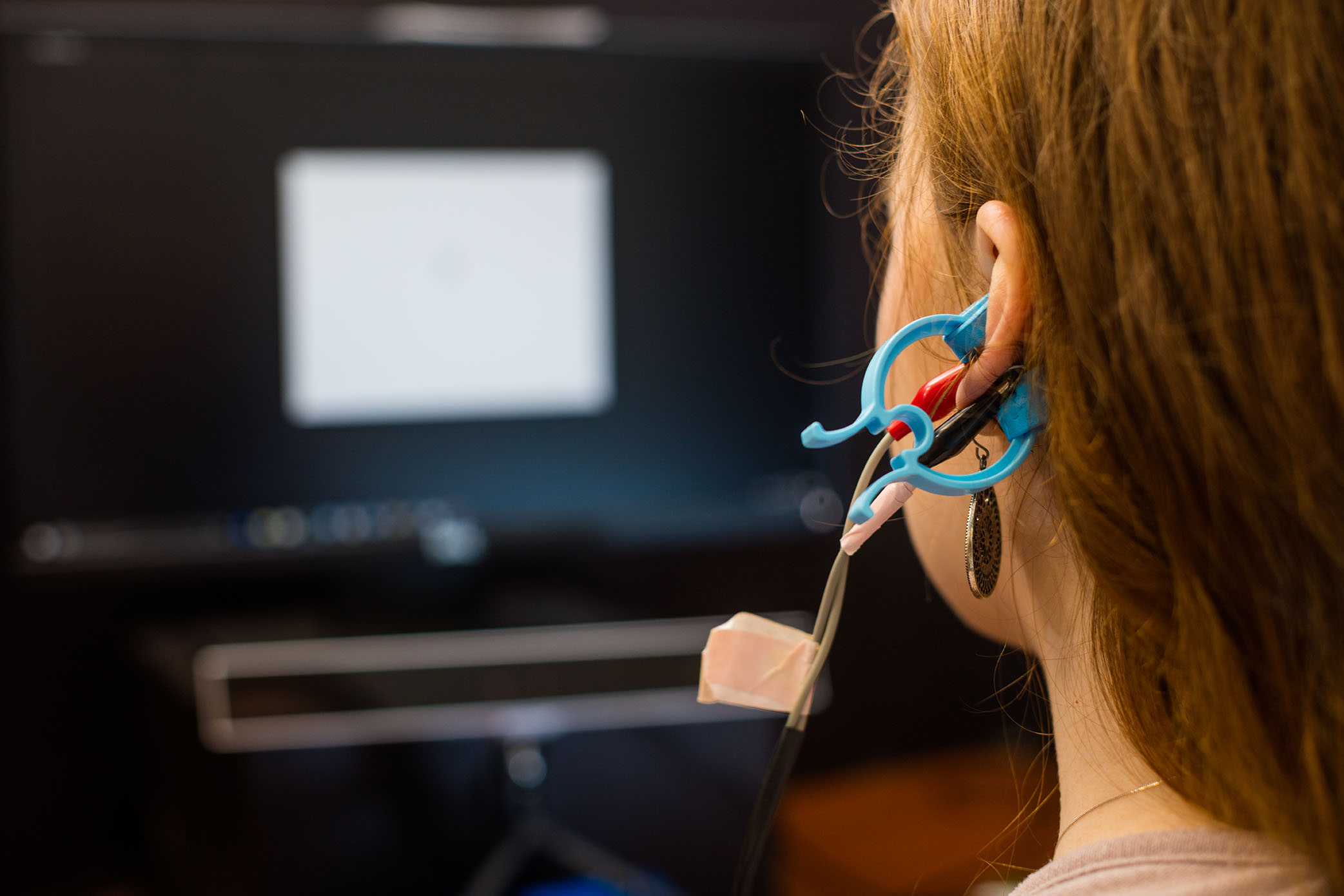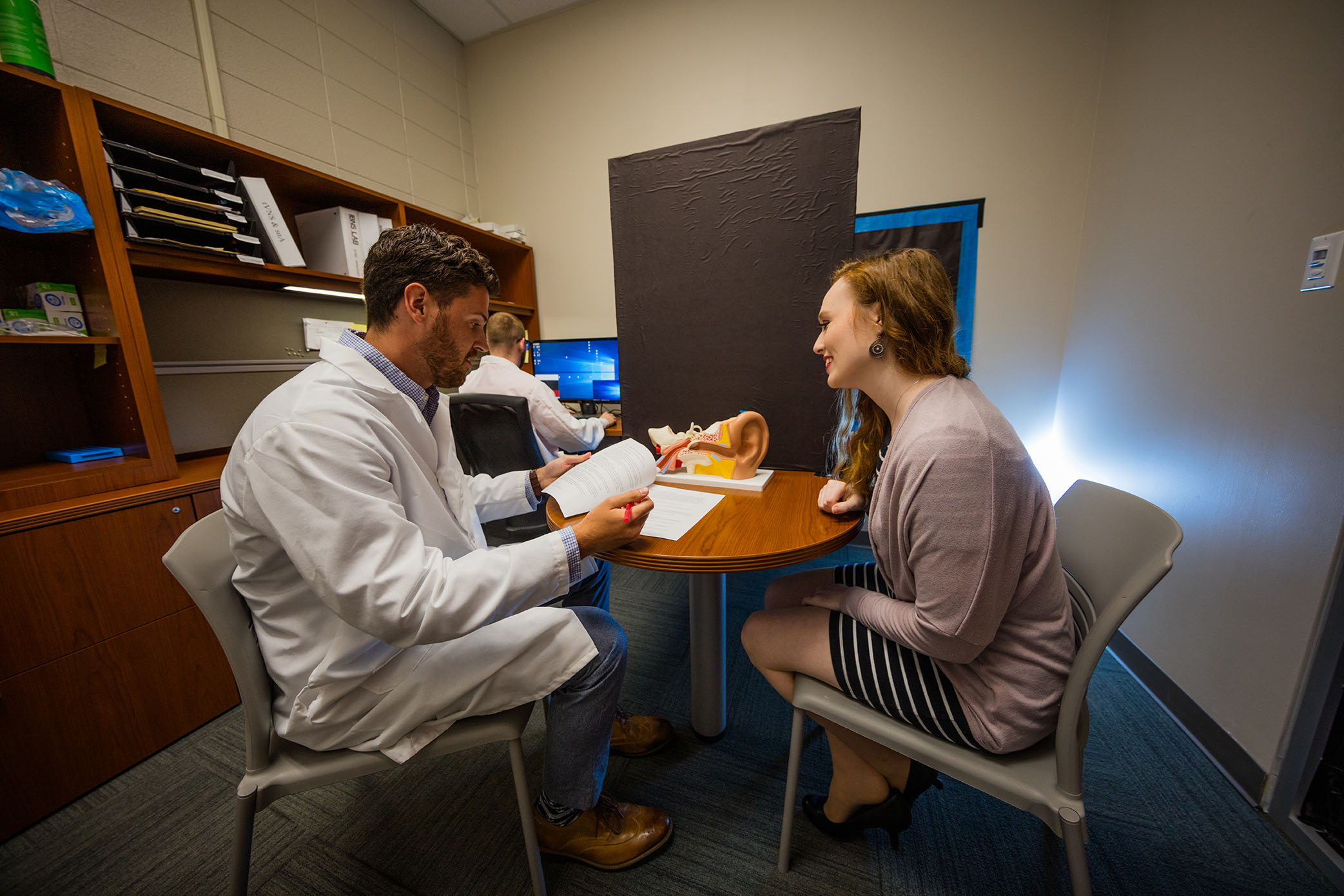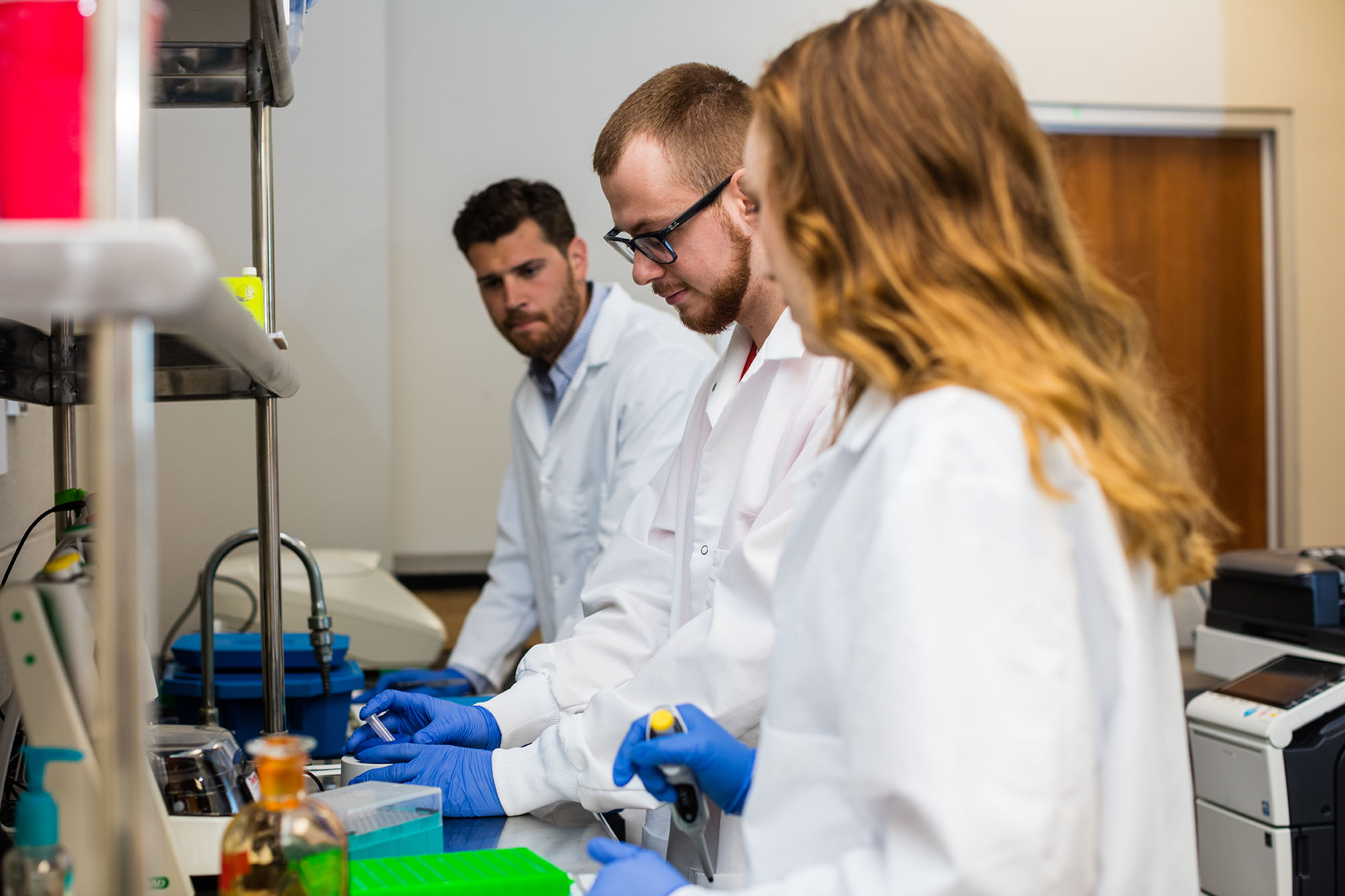The Integrative Behavioral Neural Science Lab conducts research on the effect of autonomic arousal on cognition and behavior as well as investigations of the relative contributions of genes and environmental factors on risk-taking. To do this we utilize a range of techniques including transdermal Vagus nerve stimulation, EEG, and genotyping. The IBNS lab emphasizes teaching students the scientific process by deeply engaging them as student-scientists throughout each step of the study.

The vagus nerve is a mixed motor/sensory nerve that provides the brain with information about peripheral state. Transdermal vagus nerve stimulation (tVNS) is a minimally invasive way to study the effects of vagal influence on a wide array of systems and behaviors. Currently we are confirming the capacity of tVNS to alter biomarkers indicating functional activation of the vagal-CNS axis. We are also piloting studies of tVNS effects on cognition.

Humans are profoundly social and suffer harm when excluded. We are studying how level
of autonomic arousal impacts the perception of exclusion and stress biomarkers under
conditions of exclusion and inclusion.

Risk taking is a product of gene-environment interaction. In these studies, we seek
to identify the relative contribution of each. We are especially interested in the
interactions of genes related to dopamine availability and sensitivity as well as
genes related to sociability. Current studies investigate how autonomic arousal and
social structure interact with these genes to influence risk-taking.